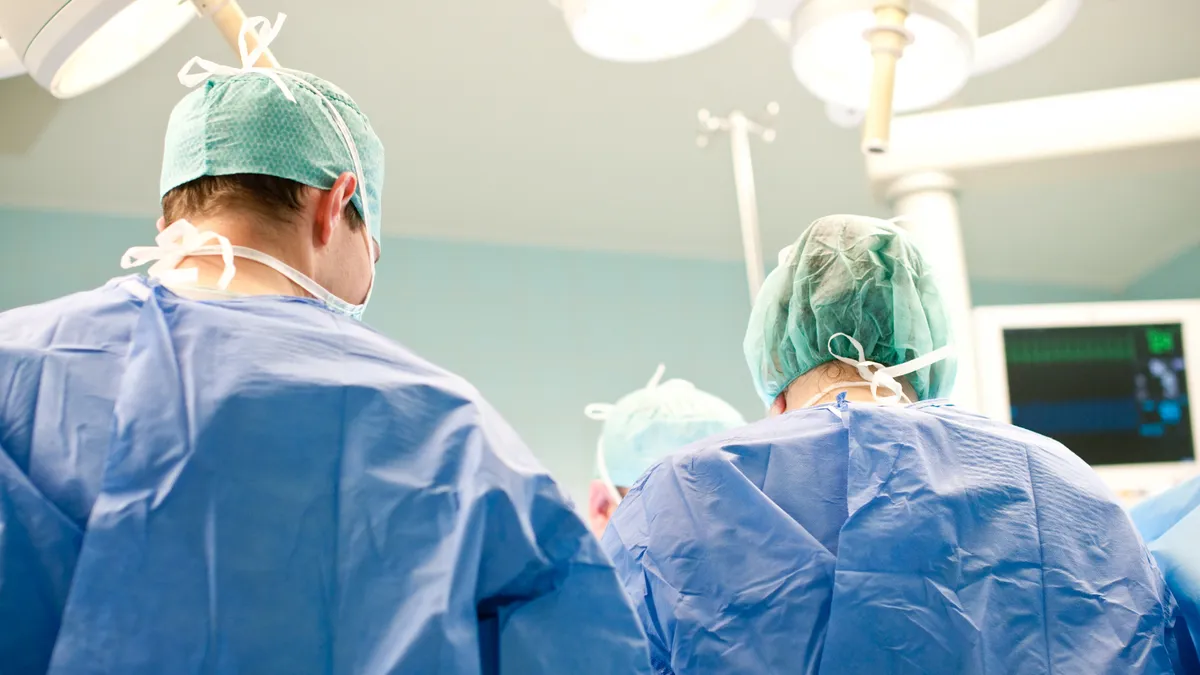Dive Brief:
- FDA issued a series of updates Tuesday regarding a women's health device safety issue spotlighted in a 2014 advisory committee meeting.
- The agency said laparoscopic power morcellation for uterine fibroid removal or hysterectomy should be performed only with the use of a tissue containment system due to the risk that the treatment may spread previously undetected cancer.
- The safety communication update was issued in conjunction with a draft guidance recommending additional safety information be included in the labeling for power morcellators, including a boxed warning highlighting risks. The agency also authorized updated labeling for Olympus’ PneumoLiner containment system, a type of surgical bag that prevents tissue fragments, cells and fluids from escaping into the abdomen during a gynecologic procedure.
Dive Insight:
In 2014, FDA warned against the use of laparoscopic power morcellators for hysterectomy or fibroid removal, also known as myomectomy, for most women, after determining through its own data analysis that the devices could spread cancerous tissue. After convening an advisory panel to further consider the issue, the agency later that year published a guidance document covering labeling for laparoscopic power morcellators in gynecologic surgery.
Power morcellators break up uterine fibroids, which are noncancerous growths in the lining of the uterus, into fragments that can then be removed through small incisions or the vagina. FDA estimated that as many as one in 350 women undergoing treatment for fibroids may have uterine cancer, a greater risk than was previously known.
Following FDA’s actions, some hospitals restricted use of power morcellators, a number of insurance companies moved to limit coverage, and Johnson & Johnson suspended sales of the devices. Still, some physicians have argued in support of the procedure, saying that eliminating minimally invasive surgery for uterine fibroids forced women to have open surgery, which carries its own risks. A Wall Street Journal article last year looking at the devices found the medical community is still divided over their use.
In the group of documents it released Tuesday, FDA is endorsing a solution it believes will promote safer use of power morcellators in gynecologic surgeries. The agency continues to warn against employing the devices for removal of the uterus or uterine fibroids in the majority of women.
FDA is now recommending that product labels for the devices contain a boxed warning with information on the risk of spreading malignant tissue. Labels should back use of containment systems and specify that power morcellators are contraindicated for patients who are post-menopausal or over 50 years of age.
FDA said testing and clinical data have indicated that use of a containment system confines morcellated tissue and may prevent the peritoneal spread of cancer cells. The Olympus PneumoLiner device is currently the only containment system that has received FDA marketing authorization. While the device hasn't changed since FDA granted its original clearance in 2016, updates to the product's labeling will better define the appropriate patient population and use of the device, the agency said.










